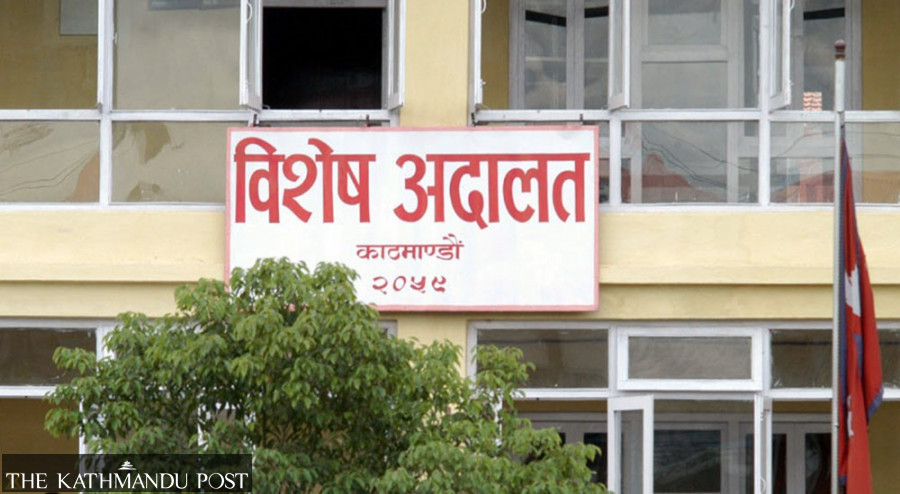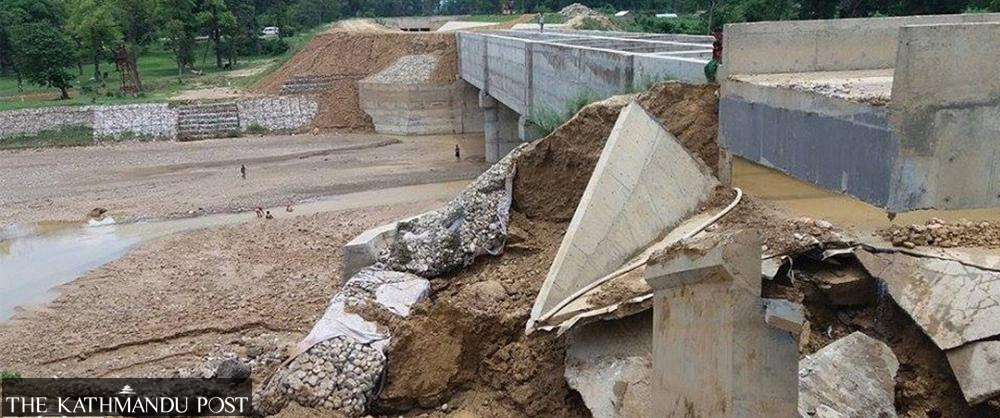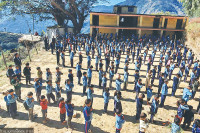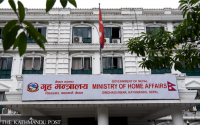National
Court acquits all 21 accused of graft in Sikta project
Anti-corruption body had filed a case against 21 including former minister and chair of Kalika Construction Bikram Pandey for substandard construction.
Post Report
The Special Court on Sunday gave clean chit to all 21 accused in corruption including former Minister Bikram Pandey during the construction of Sikta Irrigation Project.
On December 7, 2018, the Commission for Investigation of Abuse of Authority filed a corruption case at the Special Court against Pandey, chairman of the Kalika Construction, along with other 20 individuals, for substandard construction that led to repeated collapse of the main canal of the multi-billion-rupee national pride project.

Others indicted in the case were project chiefs in different times— Sarva Dev Prasad, Saroj Chandra Pandit, Dilip Bahadur Karki, and Ramesh Basnet—and nine senior divisional engineers as well as engineers with the Department of Irrigation and managing director of the project consultant ERMC-ITECO Nepal JV.
A joint bench of Special Court chairperson Sri Kanta Poudel and members Ramesh Kumar Pokharel and Yamuna Bhattarai acquitted all, according to the Special Court.
“The court gave the clean chit to all of them saying that they are liable to civil offense which can be treated as per the law,” said Dipendranath Yogi, spokesperson at the Special Court. “Details of why they were given clean chit will be available once the full verdict comes out.”
The anti-graft body had sought to recover Rs2.13 billion as embezzled amount from Pandey whose Kalika Construction had won the contract of building the main canal of the irrigation project.
Quality of works at the project that aims to irrigate 80 percent of arable land in Banke district came into question after the main canal repeatedly collapsed.
The main canal was heavily damaged at different sections of a 5-km segment in June 2016 and July 2018 during the testing process. When the newly built channel was first tested in June 2016, it collapsed at multiple sections. Despite repair, it broke in July again during another test.
The commission had swung into action after a government probe panel formed in August 2018 submitted a report stating that the main canal was collapsing repeatedly due to the failure to spot dissoluble soil in the designing phase.
The panel led by Sushil Chandra Tiwari, immediate joint-secretary at the Ministry of Energy, Water Resources and Irrigation, had stated that consultants, while designing the project, failed to carry out a special test of the soil, which led to the construction of a fragile canal.

The panel’s report blamed the dispersive soil for the repeated collapse of the main canal. The canal was built on such soil because the feasibility studies did not mention anything about that, according to the report.
In its 55th annual report, the Office of the Auditor General stated that despite the clear presence of dissoluble soil on the surface, its identification, analysis and treatment were not conducted before constructing the canal.
Both time and cost of the national pride project have been on the rise due to different problems including problems appearing in the soil.
When the project was initiated in 2005-06, it was supposed to be completed by 2014-15 at an estimated cost of Rs12.8 billion. The deadline was later extended till the end of fiscal 2021-22. By the time it is fully operational, the project is expected to cost Rs25.02 billion.
But physical progress in the project as of mid-March stands at 69 percent, according to Economic Survey 2021-22. As per the survey report, efforts have been made to operate the irrigation project through emergency maintenance in different parts of the troubled 4-km section of the canal.






 12.58°C Kathmandu
12.58°C Kathmandu













